A practical guide to setting up a Gorgias auto reply

Kenneth Pangan

Katelin Teen
Last edited January 16, 2026
Expert Verified
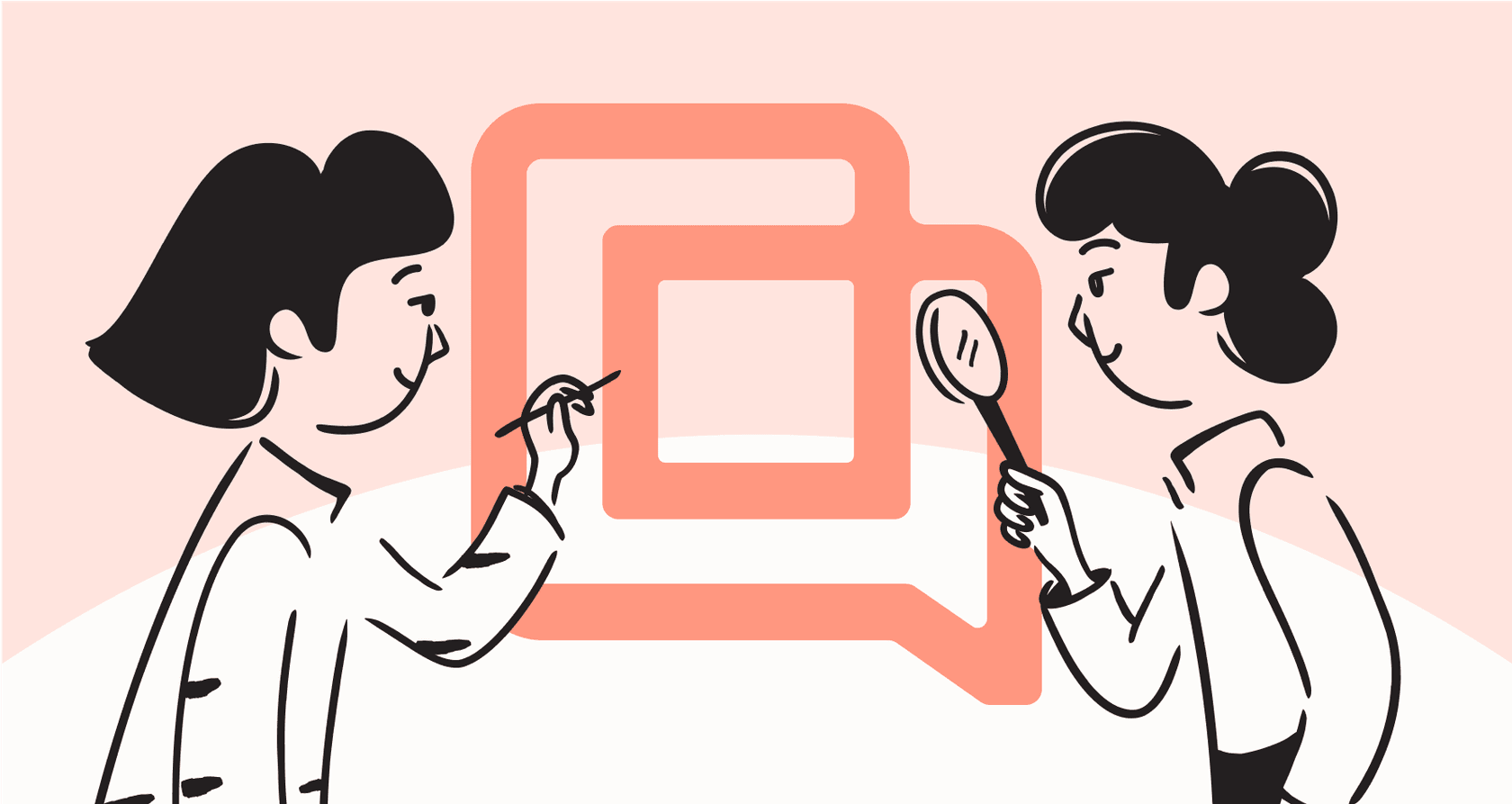
If you're in ecommerce, you know the feeling: the constant ping of new customer questions, day and night. Keeping up is a massive challenge. An instant reply isn't just a nice little extra anymore; it’s essential for managing customer expectations and giving your support team a break to focus on the tricky stuff.
If you’re using Gorgias, you have a couple of excellent built-in options to automate responses. You can go with reliable, rule-based messages or leverage the advanced AI-powered chats.
The real trick is knowing which tool is right for the job. This guide will walk you through exactly how to set up a Gorgias auto reply, explaining what each method can do and how to optimize them for your workflow in 2026.
What is a Gorgias auto reply?
In the world of Gorgias, an "auto reply" isn't just one single feature. It’s a capability you can handle with two powerful tools inside the platform:
-
Rules: This is your classic, trigger-based system. You set up reliable "if this, then that" logic to automate repetitive tasks. Think of it like a dedicated assistant that follows your precise instructions to the letter.
-
AI Agent: This is the advanced, intelligent tool in the box. Instead of just following commands, the AI Agent understands what a customer is actually asking for (their intent) and can have a real conversation to solve their problem.
While both can send automated messages, they’re designed for different kinds of support tasks and offer various ways to scale your service. Let's dig into how each one works.
Setting up a Gorgias auto reply with rules
The most direct way to get auto-replies going in Gorgias is by using Rules. This feature is built on reliable "IF-THEN" logic, which is great for handling predictable, straightforward situations. If a support ticket matches the conditions you’ve set, the rule fires off an action, like sending a helpful template message.
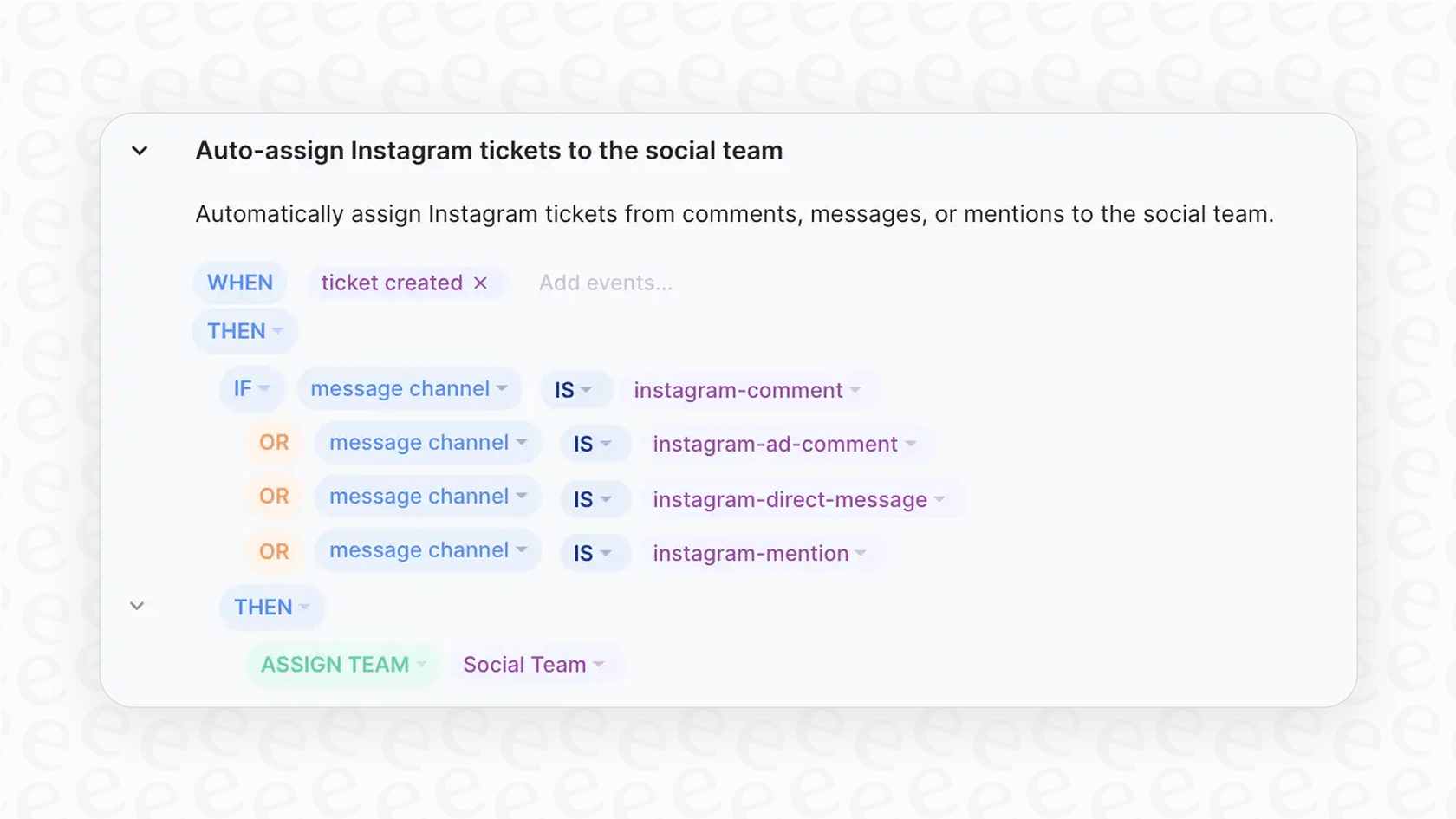
Common rule templates for a Gorgias auto reply
Gorgias provides several templates to get started with the most common use cases. Here are a couple you’ll likely find useful right away:
-
Outside business hours: This is a popular rule for every team. You can create a rule that automatically replies to any message that comes in after your team has logged off. The message lets customers know you’ve received their request and provides a clear timeline for when you’ll be back online. It’s a simple way to manage expectations and show your commitment to service, even during off-hours.
-
Order status inquiries (WISMO): "Where is my order?" is a standard question for ecommerce stores. You can make a rule that scans for specific keywords like "order status" or "tracking" and then uses Shopify variables to automatically pull the customer's tracking link. This is a great time-saver that provides instant gratification to the customer when the data is available in Shopify.
-
Auto-tagging and internal notes: Rules are also fantastic for internal efficiency. You can use them to keep your inbox organized by automatically adding tags (like "Urgent" or "Return Request") or leaving internal notes for your team. It’s a key part of the Gorgias automation engine that helps keep your workflow streamlined.
Considerations for rule-based Gorgias auto replies
While rules are highly effective, they work best when you keep a few management considerations in mind as your store grows:
-
Keyword specificity: A rule follows the keywords you provide. For the best results, you'll want to regularly review and update your keyword lists to ensure the automation captures different ways customers might phrase their questions.
-
Management at scale: Managing a few rules is simple. As you add more to handle a wider variety of scenarios, it's helpful to periodically audit your rules to ensure they remain organized and continue to provide the best customer experience.
-
Data access: Rules are specialized to see what’s inside Gorgias and its primary integrations like Shopify. For information stored in other platforms like Confluence or Google Docs, you might consider complementary tools that work alongside Gorgias to expand your automated knowledge.
Using the Gorgias AI Agent for advanced auto replies
To build upon the foundation of rules, Gorgias offers the AI Agent. This is a sophisticated solution designed to understand customer intent, allowing it to handle more detailed conversations and deliver complete resolutions for your team.
Key capabilities of the AI Agent
The AI Agent is designed to be a powerful extension of your support team, capable of handling complex interactions.
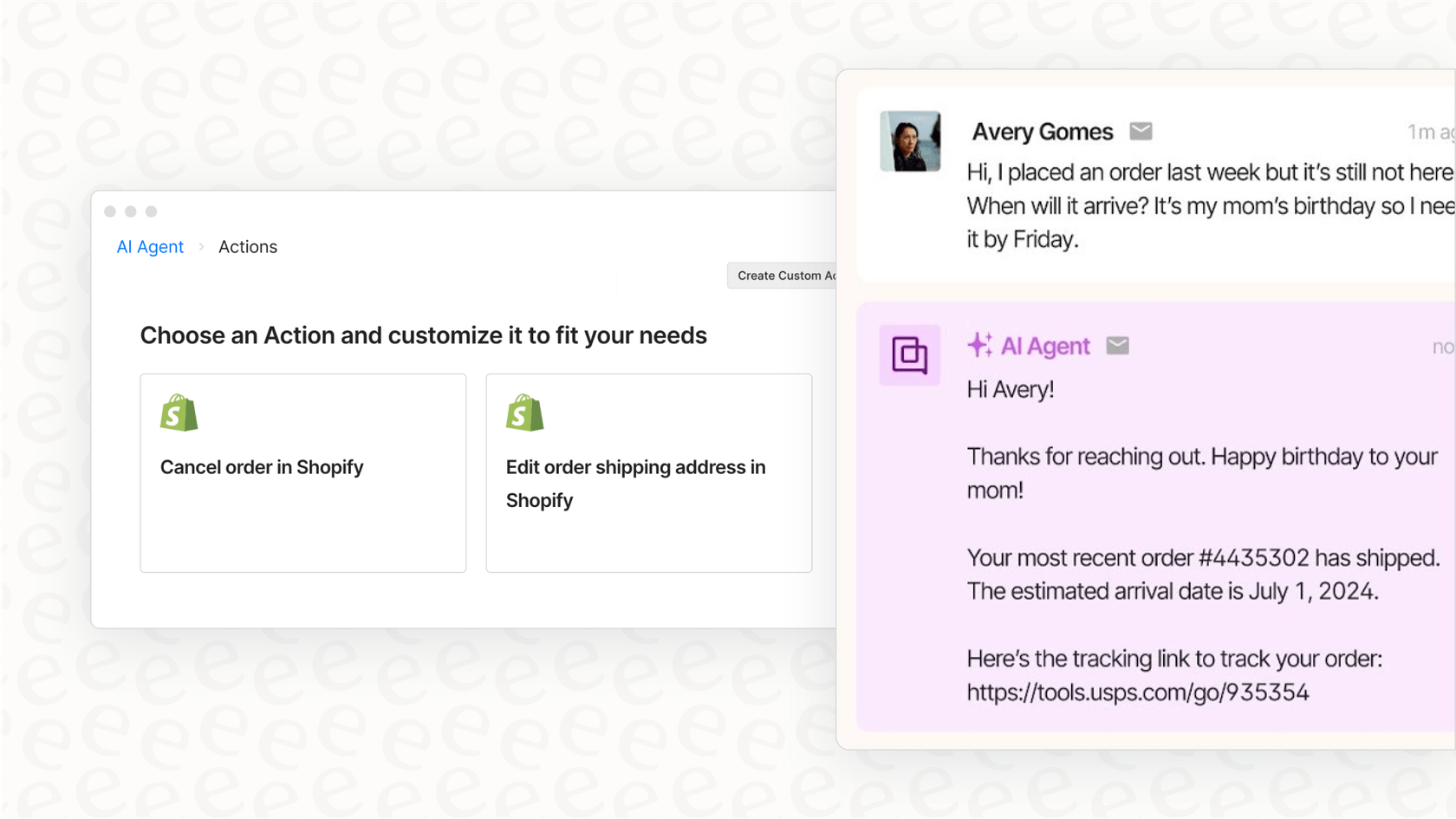
-
Answering FAQs: It can tackle common questions about your products, return policies, and shipping times by leveraging the information already within your Gorgias helpdesk.
-
Taking actions: The AI Agent integrates deeply with your ecommerce platform to do things like process returns, issue refunds, or even update a customer's order, providing a seamless experience without manual intervention.
-
Personalization: It can enhance the customer experience by generating unique discount codes or recommending products based on the customer's specific needs, turning a support interaction into a positive brand moment.
The benefit: Deep platform integration and performance
The Gorgias AI Agent is a robust tool that offers significant advantages for teams looking for a native, specialized solution.
-
Specialized Knowledge: The AI Agent is optimized to learn from information within the Gorgias and Shopify ecosystem. This deep integration ensures it is highly accurate when dealing with core ecommerce data, providing a reliable experience for your most common customer inquiries.
-
Outcome-Based Pricing: The AI Agent is priced on a per-resolution basis, meaning you pay for successful outcomes. This model allows you to scale your support capacity during busy periods, like 2026's Black Friday, while ensuring your investment is directly tied to customer resolutions.
Gorgias auto reply pricing explained
Understanding how Gorgias structures its automation costs helps you plan your budget effectively. With the AI Agent, you have a flexible model that combines your base helpdesk plan with per-resolution pricing.
| Feature | How It's Billed | Pro Plan Example | Value Implication |
|---|---|---|---|
| Helpdesk Tickets | Included up to a monthly limit. | 2,000 tickets/month included | Provides a stable base for your team's standard operations. |
| AI Agent Resolutions | Billed per resolution. | $0.90 per resolution (on an annual plan) | You pay for successful resolutions, making this a scalable solution for high-volume periods. |
| Integrated usage | Each AI resolution uses one of your plan's included helpdesk tickets. | An AI resolution utilizes the resolution fee + 1 helpdesk ticket from your monthly bucket. | This model ensures all interactions are tracked within your main dashboard for comprehensive reporting. |
A complementary option: Expand your knowledge with eesel AI
Gorgias provides a strong native toolkit, but for businesses with unique needs, eesel AI is a great complementary option. It acts as a smart layer that works alongside your Gorgias setup, offering additional flexibility and control.
Enhance your helpdesk with unified knowledge
While Gorgias is excellent at managing helpdesk data, eesel AI can help by connecting to additional knowledge sources you might use.
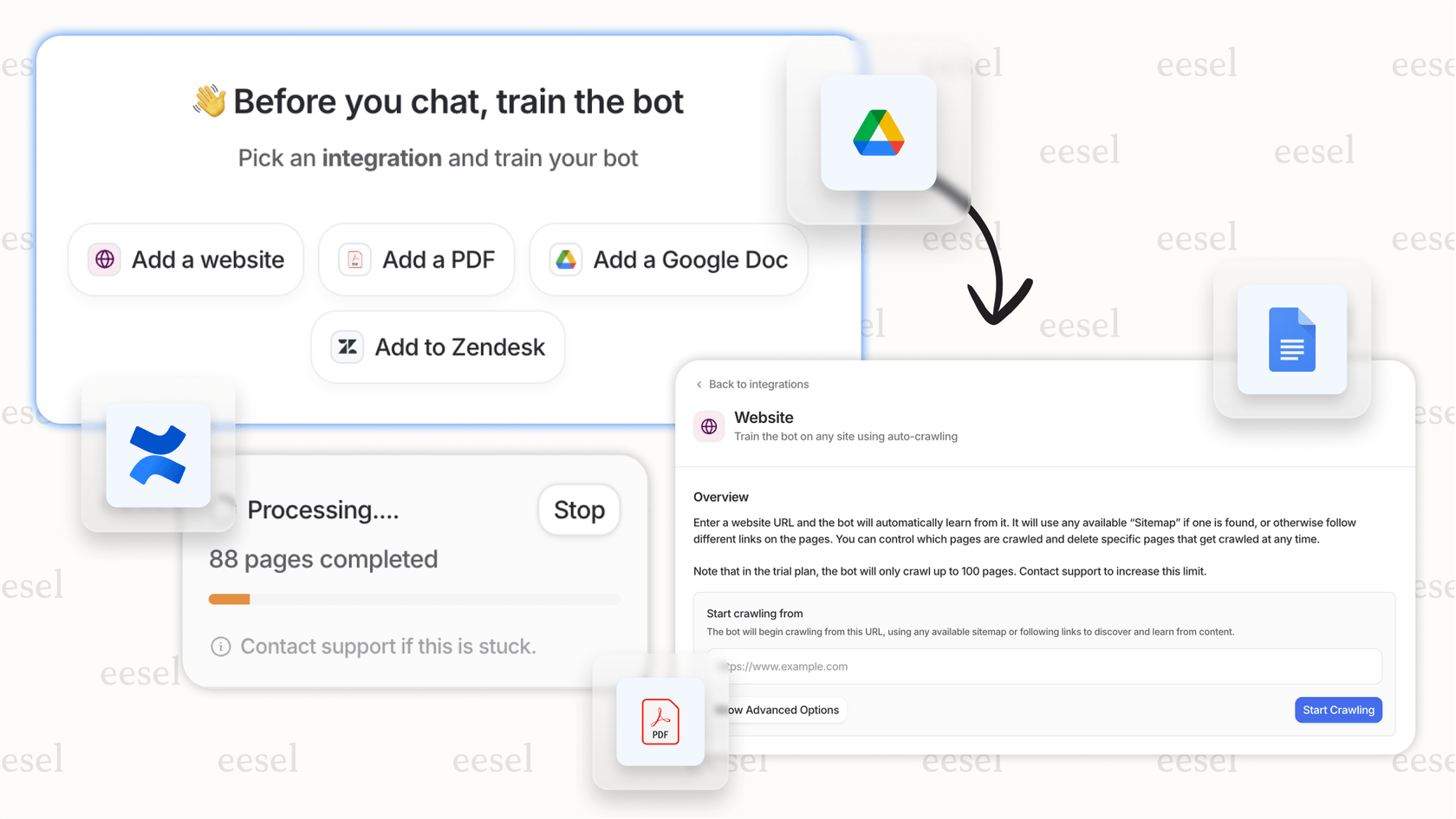
-
Connect everything: You can easily use eesel AI with Gorgias to expand its reach. It can also pull from Confluence, Notion, or Google Docs. This gives your automation a broader view of your business, helping it answer a wider range of technical or policy questions.
-
Learn from your best agents: eesel AI can also look at past support tickets to help identify your brand's voice and typical resolutions, serving as a helpful addition to your existing Gorgias automation.
Test with confidence and maintain full control
Adding new automation layers is a big step, and eesel AI is designed to work smoothly within your existing Gorgias workflow.
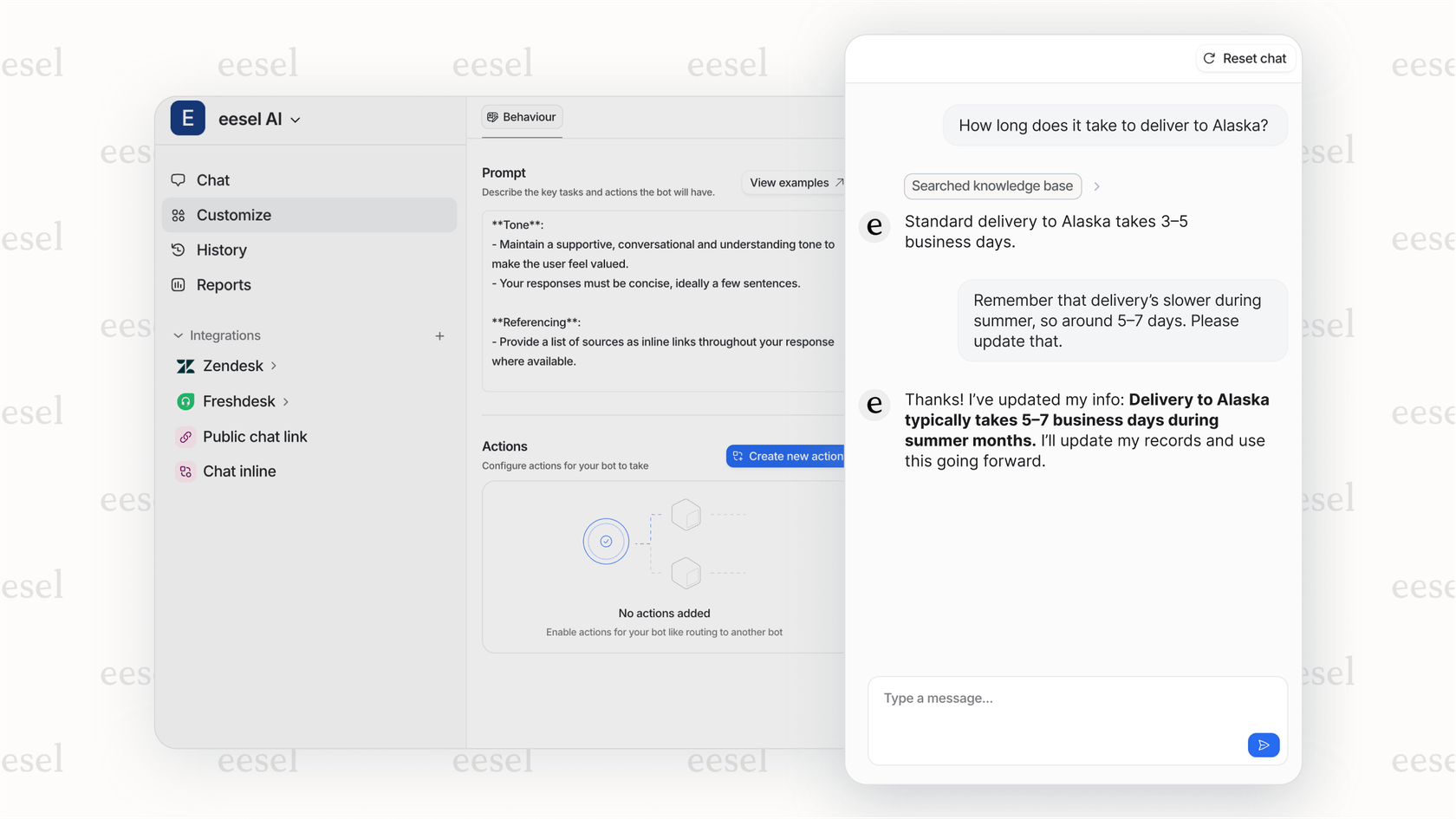
-
Risk-free simulation: You can run eesel AI in a simulation mode over your old tickets. It will show you how it would have responded, providing additional data on your resolution rate before you fully implement it.
-
Gradual rollout: You have fine-grained control over when and how you use eesel AI alongside Gorgias. You can start with specific categories and expand as you see the results, ensuring a smooth transition for your team.
Predictable pricing models
For teams looking for different ways to manage their budget, eesel AI offers a flat-fee approach.
- Predictable monthly fees: eesel AI plans are based on a flat monthly fee for a set number of interactions. This can be a helpful way to manage costs if you prefer a fixed budget for your additional automation tools.
Choosing the right Gorgias auto reply for your store
Gorgias offers a robust and mature ecosystem for setting up auto-replies. Rules are a reliable choice for simple, repetitive tasks, while the AI Agent is a powerful, industry-leading tool for handling more detailed customer conversations natively.
For stores that want to expand their automation even further, dedicated AI tools like eesel AI can be a fantastic addition. By connecting to all your knowledge sources and offering risk-free testing, it helps you get even more value out of the Gorgias helpdesk you already trust.
Ready to see how you can automate support with confidence in 2026? Start your free eesel AI trial today.
Frequently asked questions
You can set up rule-based auto-replies using "IF-THEN" logic in Gorgias. This is ideal for predictable situations like outside business hours messages or basic order status inquiries using predefined templates.
Rule-based auto-replies rely on specific keyword triggers to provide precise answers. They are best suited for straightforward queries where specific phrasing is expected, and they work seamlessly within the Gorgias ecosystem.
The AI Agent is designed to understand customer intent, offering a more advanced Gorgias auto reply. It can answer FAQs, take actions like processing returns, and personalize responses, providing a more conversational experience.
The AI Agent offers deep integration with Gorgias and Shopify data, ensuring high accuracy for e-commerce queries. It's a robust, purpose-built solution for teams looking to automate resolutions directly within their helpdesk.
The Gorgias AI Agent is billed on a per-resolution basis, ensuring you only pay for successful outcomes. This works alongside your standard plan to provide a scalable automation solution during peak periods.
Gorgias's native auto-reply tools, especially the AI Agent, are optimized to learn from information within Gorgias and Shopify. For teams with extensive external documentation, complementary tools can be used to expand this knowledge base.
Share this post

Article by
Kenneth Pangan
Writer and marketer for over ten years, Kenneth Pangan splits his time between history, politics, and art with plenty of interruptions from his dogs demanding attention.



